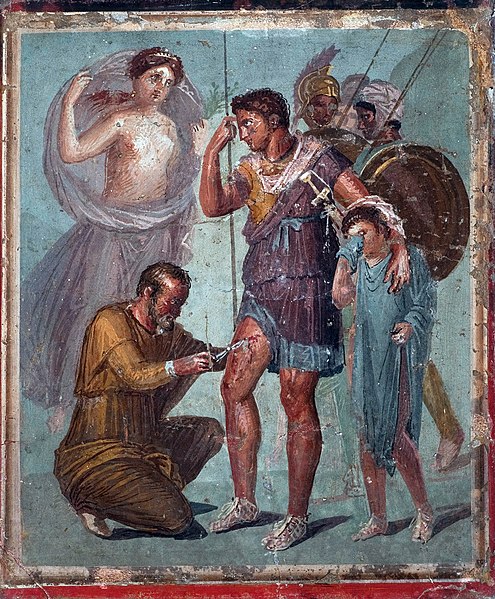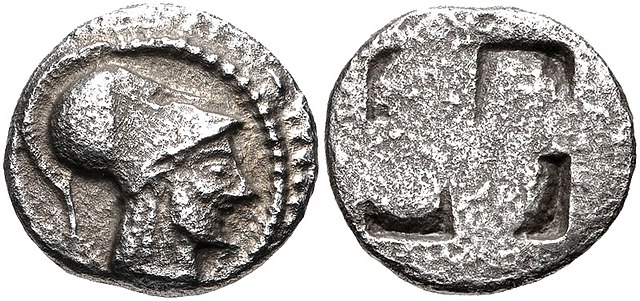In Greco-Roman mythology, Aeneas was a Trojan hero, the son of the Trojan prince Anchises and the Greek goddess Aphrodite. His father was a first cousin of King Priam of Troy, making Aeneas a second cousin to Priam's children. He is a minor character in Greek mythology and is mentioned in Homer's Iliad. Aeneas receives full treatment in Roman mythology, most extensively in Virgil's Aeneid, where he is cast as an ancestor of Romulus and Remus. He became the first true hero of Rome. Snorri Sturluson identifies him with the Norse god Víðarr of the Æsir.
Iapyx removing an arrowhead from the leg of Aeneas, with Aeneas's son, Ascanius, crying beside him. Antique fresco from Pompeii.
Aeneas flees burning Troy, Federico Barocci, 1598 (Galleria Borghese, Rome, Italy)
Coinage of Aenea, with portrait of Aeneas. c. 510–480 BCE.
Venus and Anchises by William Blake Richmond (1889 or 1890)
In Greek and Roman mythology, Anchises was a member of the royal family of Troy. He was said to have been the son of King Capys of Dardania and Themiste, daughter of Ilus, who was son of Tros. He is most famous as the father of Aeneas and for his treatment in Virgil's Aeneid. Anchises' brother was Acoetes, father of the priest Laocoön.
William Blake Richmond's Venus and Anchises (1889 or 1890).
Aphrodite reveals baby Aeneas to Anchises (1st century AD)
Aeneas carrying Anchises from Troy. 520-510 BC.
Aeneas Bearing Anchises from Troy, by Carle van Loo, 1729 (Louvre)







